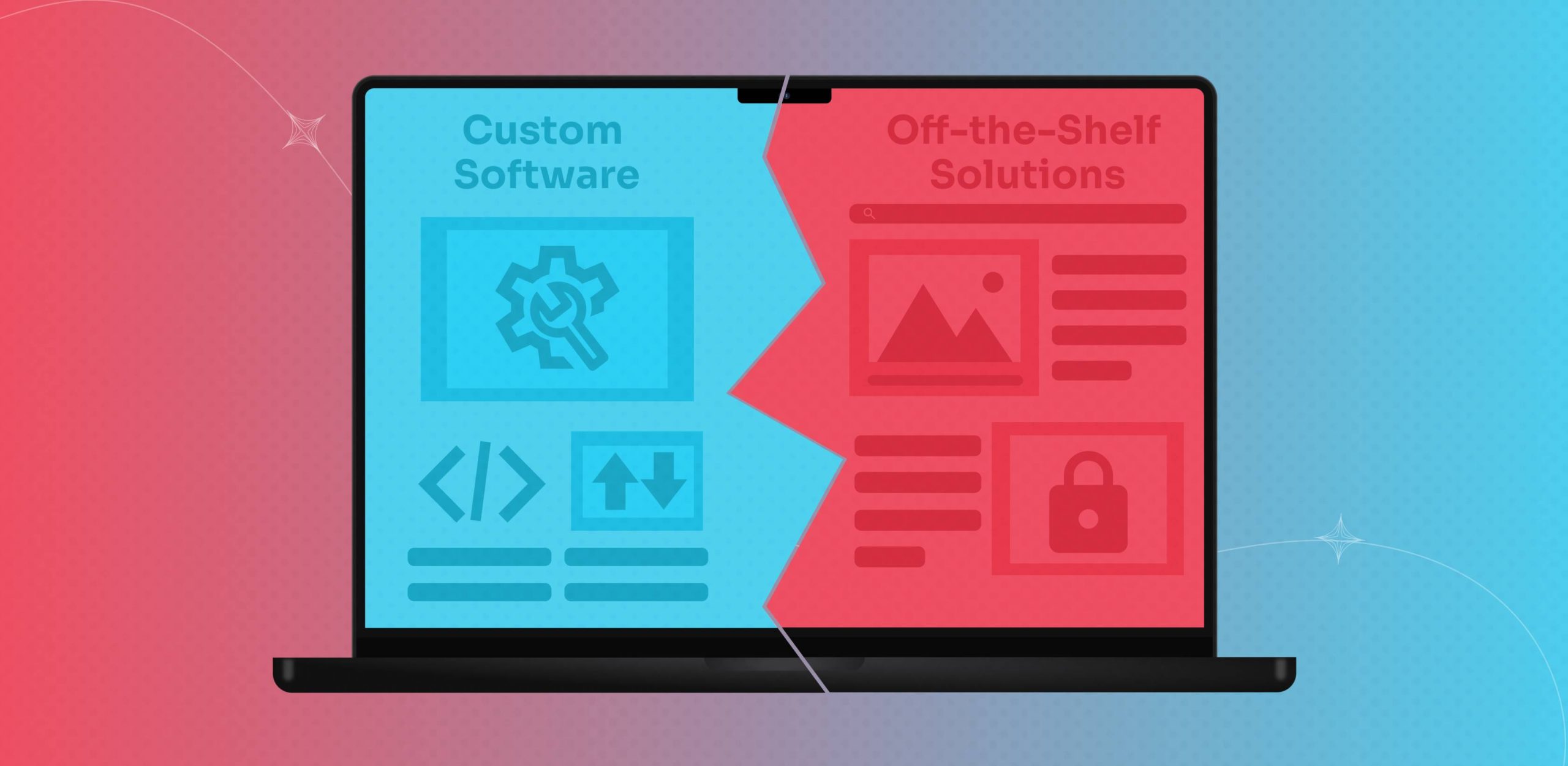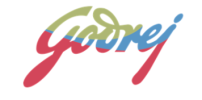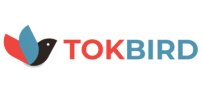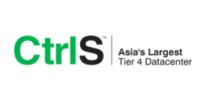Custom eLearning app development is revolutionizing the way we learn, offering universities and corporations the ability to deliver more personalized, efficient, and engaging educational experiences. As technology continues to reshape education and corporate training, these tailored solutions are bridging the gap between traditional learning methods and modern digital needs. With global eLearning revenue projected to exceed $375 billion by 2026, adopting digital learning solutions is no longer a luxury—it’s a necessity.
This blog delves into the transformative potential of custom eLearning app development services, highlighting their benefits for universities and corporates alike. Whether you’re an academic institution striving to improve student outcomes or a corporate leader focused on workforce development, understanding the value of partnering with a custom eLearning app development company will position you for success in the future of learning.
Understanding Custom eLearning App Development
Custom eLearning app development refers to the process of designing and building digital learning platforms tailored to meet the unique requirements of a specific organization or institution. These apps go beyond the limitations of generic, one-size-fits-all solutions, offering personalized features and functionalities that align with distinct learning objectives, workflows, and user preferences.
Custom solutions are ideal for both educational institutions and corporate entities because they prioritize adaptability and flexibility, ensuring that the learning experience is optimized for the intended audience. Whether it’s enhancing student engagement in a university setting or providing industry-specific training for corporate employees, custom eLearning apps are designed to address the exact needs of the users.
Features of Custom eLearning Solutions
Personalized Learning Paths
Custom eLearning apps use data-driven insights and AI to create individualized learning experiences. Learners can progress at their own pace, access recommended content, and receive personalized feedback. This feature is particularly beneficial for universities seeking to accommodate diverse student needs and for corporations aiming to upskill employees efficiently.
Seamless Integration
Custom apps can integrate with existing tools such as Learning Management Systems (LMS), Human Resource Management Systems (HRMS), or other software. This ensures smooth workflows and provides a cohesive user experience. For example, a university can sync its eLearning app with its grading system, while a corporate entity might integrate the app with performance management tools.
Advanced Analytics and Reporting
Data is at the core of modern learning. Custom eLearning apps include advanced analytics to monitor user engagement, track progress, and evaluate the effectiveness of learning modules. Educators can identify struggling students, and corporate trainers can measure training ROI and adjust content accordingly.
Scalability and Flexibility
As an organization grows, so do its learning needs. Custom eLearning apps are built to scale, accommodating additional users, content, or new features. This makes them a future-proof solution for universities expanding their enrollment and corporations with growing teams.
Engaging Features
Custom solutions allow the inclusion of interactive elements like gamification, quizzes, AR/VR simulations, and collaborative tools to enhance learner engagement. These features make learning more dynamic and immersive compared to generic platforms.
Stay ahead in the future of learning with a tailor-made eLearning solution.
Key Benefits of elearning App Development for Universities and Corporates
The adoption of custom eLearning app development has transformed how universities and corporations deliver education and training. These tailored platforms address specific needs, enhance user engagement, and maximize outcomes. Below is a detailed look at the benefits for both sectors.
For Universities
Enhanced Student Engagement
Custom eLearning apps empower universities to create immersive and interactive learning experiences, addressing the diverse needs of modern learners. Features like:
- Virtual Labs: Allow students to conduct experiments and simulations in a risk-free, digital environment, fostering hands-on learning without the constraints of physical infrastructure.
- Gamified Assessments: Incorporating game-like elements such as points, badges, and leaderboards makes learning fun and competitive, motivating students to stay engaged.
- AI-Driven Recommendations: Adaptive algorithms analyze students’ performance and suggest personalized content, helping them focus on areas requiring improvement.
These features collectively ensure that learning is not only effective but also captivating.
Scalability and Accessibility
Universities often cater to a diverse, geographically dispersed student body. Custom eLearning apps provide the tools necessary to:
- Reach students across borders, enabling global access to quality education.
- Support multilingual content, ensuring inclusivity for non-native speakers.
- Include accessibility features such as screen readers, captions, and adjustable font sizes to support differently-abled learners.
This scalability and inclusivity make education accessible to all, regardless of location or personal challenges.
Data-Driven Insights
Custom eLearning platforms come equipped with advanced analytics capabilities, offering educators valuable insights into student performance:
- Progress Tracking: Monitor attendance, assignment submissions, and test scores to understand student engagement.
- Learning Gap Identification: Pinpoint areas where students struggle and provide targeted support.
- Course Effectiveness: Evaluate the impact of curricula and refine teaching strategies based on data.
By leveraging these insights, universities can make informed decisions to improve teaching methodologies and outcomes.
Cost Efficiency
Digitizing education through eLearning apps significantly reduces operational costs:
- Reduced Dependency on Physical Resources: Minimize expenses on textbooks, classroom facilities, and printed materials.
- Automation of Administrative Tasks: Simplify processes like enrollment, grading, and attendance tracking, freeing up staff time for more critical activities.
- Reusable Content: Digital modules and recorded lectures can be used repeatedly, eliminating redundancy and further saving resources.
This cost-effectiveness ensures that universities can deliver quality education while optimizing their budgets.
Read the blog ‘What are the Benefits of a Custom elearning App Development for Corporate elearning?’
For Corporates
Tailored Training Programs
Corporations benefit from custom eLearning app development by providing training programs specifically designed for their workforce:
- Industry-specific modules ensure employees acquire relevant knowledge and skills.
- Custom content can address unique challenges and align with organizational goals.
- Scenario-based learning and case studies offer practical, real-world applications of knowledge, making training highly effective.
With tailored programs, employees are better equipped to meet industry demands and excel in their roles.
Improved ROI
The ability to measure the impact of training is a critical advantage of custom eLearning apps:
- Performance Metrics: Analytics tools track individual progress and overall team performance.
- Cost Savings: Online training reduces the need for travel, venue rentals, and printed materials.
- Enhanced Productivity: Employees can apply newly acquired skills immediately, leading to measurable improvements in work output.
By tracking key performance indicators (KPIs), corporations can ensure their training programs deliver a high return on investment.
Flexibility for Remote Teams
The rise of remote and hybrid work environments has increased the demand for flexible learning solutions. Custom eLearning apps provide:
- 24/7 Accessibility: Employees can access training modules anytime, anywhere, using their preferred devices.
- Self-Paced Learning: Individuals can progress through the material at their own speed, accommodating different learning styles.
- Offline Access: Features like downloadable content ensure uninterrupted learning, even without an internet connection.
These capabilities make eLearning a perfect fit for distributed teams and busy professionals.
Increased Employee Retention
A well-trained and engaged workforce is more likely to stay loyal to their organization. Custom eLearning apps help:
- Foster continuous learning and professional development, which employees value highly.
- Create engaging content that keeps employees interested and motivated.
- Offer career advancement opportunities through upskilling and reskilling programs.
By investing in employees’ growth, corporations not only improve retention but also build a more skilled and committed workforce.
Reach out to our experts and start your project today!
Our Approach to Custom eLearning App Development Services
Custom eLearning app development services are comprehensive solutions tailored to the unique learning needs of educational institutions and corporations. Unlike off-the-shelf eLearning platforms, custom solutions are built from the ground up to address specific goals, challenges, and workflows. These steps ensure a seamless, engaging, and effective digital learning experience that aligns with the organization’s vision.
Here’s a detailed look at the core steps of custom eLearning app development services:
Needs Assessment
The foundation of a successful eLearning app lies in understanding the user’s requirements.
- Goal Analysis: Development teams collaborate with stakeholders to identify the institution’s or corporation’s specific objectives, such as improving student engagement or streamlining employee training.
- Learner Demographics: Factors such as age, location, learning styles, and accessibility needs are considered to design a solution that resonates with the target audience.
- Challenge Identification: Key pain points, such as limited engagement, outdated content delivery methods, or integration issues, are addressed to create a roadmap for development.
Feature Development
Custom eLearning apps stand out because of their tailored features, which are designed to maximize learner engagement and effectiveness. Key features include:
- Interactive Content
- Dynamic modules like quizzes, videos, and gamified lessons enhance engagement.
- Gamification elements such as badges, leaderboards, and rewards motivate learners to complete tasks.
- AI-Driven Personalization
- Adaptive learning paths analyze user behavior and performance to recommend personalized content.
- Intelligent tutoring systems guide learners through complex topics based on their progress and challenges.
- Real-Time Collaboration Tools
- Features such as discussion forums, group chat, and live Q&A sessions foster collaboration.
- LIVE Virtual Classroom Solutions: Enable real-time interactions with instructors and peers, replicating the in-person learning environment with added benefits like recorded sessions and virtual breakout rooms.
- Accessibility Features
- Multilingual support ensures learners across geographies can access content in their preferred language.
- Tools for differently-abled users, such as screen readers and adjustable font sizes, promote inclusivity.
- Custom Mobile Learning Apps
- Mobile-first designs make learning accessible anytime, anywhere.
- Offline access and push notifications ensure uninterrupted engagement, especially for remote learners or employees on the go.
- Remote Proctoring Tool
- Secure exam monitoring solutions using AI and webcam technology.
- Ensures academic integrity and provides organizations with reliable assessments, even in remote setups.
Read the blog’What Features Make a Virtual Classroom Solution the Best?’ to know more.
Implementation and Integration
A custom eLearning app doesn’t operate in isolation. Seamless implementation and integration are critical to creating a cohesive digital ecosystem.
- Integration with Existing Systems: The app is connected to Learning Management Systems (LMS), HR platforms, or CRM tools to streamline workflows. For example, corporate training apps may integrate with performance management software to track employee progress and certification.
- Scalability: The platform is designed to accommodate growth, ensuring it can handle increasing numbers of users or expanded content libraries without compromising performance.
Ongoing Support and Updates
The digital learning landscape evolves rapidly, and so do user needs. Custom eLearning app development companies provide continuous support to ensure the app remains relevant and effective.
- Maintenance: Routine updates to fix bugs, enhance performance, and optimize user experience.
- Feature Upgrades: Adding new capabilities, such as AR/VR modules or blockchain-based credentialing, as the organization’s needs grow.
- Technical Support: Round-the-clock assistance to resolve issues, ensuring uninterrupted learning experiences for users.
Emerging Trends in Custom eLearning App Development
The future of learning is being revolutionized by cutting-edge technologies, and custom eLearning app development is at the forefront of this transformation. Here are some key trends shaping the way learners engage with educational and training platforms:
Artificial Intelligence (AI)
AI is one of the most transformative trends in digital learning solutions, powering personalized and adaptive learning experiences. Custom eLearning apps leverage AI to:
- Tailor Learning Paths: By analyzing user behavior, preferences, and performance, AI can recommend content that aligns with individual learning goals. For instance, if a learner struggles with a specific topic, the app can suggest remedial courses or materials.
- Automate Grading and Feedback: AI simplifies administrative tasks by automatically evaluating quizzes and assignments, providing instant feedback to learners.
- Chatbots for Assistance: AI-driven chatbots provide 24/7 support, answering learner queries and guiding them through their journey.
This level of customization ensures that each learner receives a unique, engaging, and effective experience.
Virtual Reality (VR) and Augmented Reality (AR)
Immersive technologies like VR and AR are redefining experiential learning by creating simulations and interactive environments. They are particularly valuable for:
- Practical Training: In fields like healthcare, engineering, and aviation, learners can practice real-world scenarios without risks. For example, medical students can perform virtual surgeries, gaining hands-on experience in a safe environment.
- Interactive Lessons: AR overlays digital information on the physical world, enhancing engagement. Imagine a biology student examining a 3D model of the human heart in augmented reality.
These technologies make learning more engaging, memorable, and effective by immersing learners in realistic scenarios.
Gamification
Gamification incorporates game-like elements into learning platforms to boost engagement and motivation. Custom eLearning apps often include features such as:
- Leaderboards: Learners compete with peers, fostering a sense of accomplishment.
- Rewards and Badges: Achieving milestones unlocks rewards or badges, encouraging continued participation.
- Challenges and Quests: Structured challenges make learning feel like a game, reducing boredom and increasing knowledge retention.
Gamification not only enhances the fun factor but also improves learning outcomes by tapping into learners’ intrinsic motivation.
Microlearning
Microlearning is becoming increasingly popular in both eLearning for universities and eLearning for corporates. It focuses on delivering content in short, focused bursts that are easy to consume. Key benefits include:
- Improved Retention: Bite-sized lessons are easier to remember than lengthy lectures.
- Flexibility: Learners can access modules during breaks, on commutes, or between tasks.
- Reduced Cognitive Overload: Short sessions prevent information fatigue, allowing learners to absorb knowledge more effectively.
Custom eLearning apps can integrate microlearning modules, making education and training more adaptable to today’s fast-paced lifestyles.
Blockchain for Credentialing
Blockchain technology is revolutionizing how certifications and achievements are managed in custom eLearning apps. It offers:
- Secure Credentialing: Certificates and qualifications are stored securely on a decentralized ledger, preventing tampering or fraud.
- Easier Sharing: Learners can easily share their verified credentials with employers or institutions through digital wallets.
- Lifetime Accessibility: Unlike traditional paper certificates, blockchain credentials are permanently accessible.
This trend is particularly beneficial for corporates and universities aiming to streamline credentialing and ensure credibility.
How Organizations Can Leverage These Trends
By embracing these trends, organizations can harness the full potential of custom eLearning app development to:
- Enhance learner engagement with personalized and immersive experiences.
- Address the unique needs of their audience, whether students or professionals.
- Stay ahead in a competitive landscape by integrating cutting-edge technologies.
The future of learning is digital, and these trends ensure that custom eLearning platforms are not only relevant but also revolutionary. Investing in these advancements is a step toward creating more dynamic, impactful, and inclusive educational experiences.
How to Choose the Right Custom eLearning App Development Partner?
Choosing the right custom eLearning app development company is crucial to ensure your project is successful and delivers measurable results. The ideal partner will not only have the technical expertise but also a deep understanding of your organization’s goals, learning challenges, and industry-specific requirements. Below are key factors to consider when selecting the right development partner.
Experience and Expertise
Experience is one of the most significant indicators of a company’s ability to deliver high-quality custom eLearning app development solutions. Look for a partner with:
- A proven track record in education app development and corporate training platforms.
- Experience working with both universities and corporate organizations.
- A portfolio showcasing their expertise in creating interactive, scalable, and engaging eLearning apps.
A company that understands the complexities of eLearning for universities and eLearning for corporates will be better equipped to address your unique challenges. Ask about their previous projects, industries served, and client successes to validate their expertise.
Customization Capabilities
One of the primary advantages of custom solutions is their ability to cater to your unique requirements. A reliable custom eLearning app development company must:
- Offer end-to-end customization, from the user interface (UI) to advanced backend features.
- Provide tailored modules, such as gamified assessments, AI-driven learning paths, and interactive content for specific audiences.
- Adapt to your existing infrastructure, including LMS integration, CRM systems, and HR tools.
Customization capabilities ensure that the eLearning platform aligns with your organizational goals, improves learning outcomes, and engages users effectively.
Technology Stack
The right partner must use cutting-edge technologies to future-proof your eLearning app and enhance user experience. Evaluate their technology stack to ensure they are proficient in:
- AI and Machine Learning: For personalized content recommendations, adaptive learning, and automated assessments.
- Augmented Reality (AR) and Virtual Reality (VR): For immersive and experiential learning in industries like healthcare, manufacturing, and engineering.
- Blockchain Technology: For secure credentialing, course certifications, and tamper-proof student records.
- Mobile Optimization: Ensuring seamless accessibility across devices, including smartphones, tablets, and laptops.
The use of the latest technologies will ensure your digital learning solution is innovative, user-friendly, and capable of evolving with emerging trends.
Portfolio and Reviews
A company’s portfolio and client reviews can provide insight into their credibility, reliability, and quality of work. Here’s what to check:
- Portfolio: Examine their past projects to evaluate the quality, functionality, and creativity of their eLearning solutions. Look for case studies demonstrating measurable improvements in learner engagement, retention, or corporate training ROI.
- Client Testimonials: Positive feedback from satisfied clients validates the company’s ability to deliver successful outcomes.
- Industry Recognition: Awards, certifications, and partnerships with leading technology providers can further solidify the company’s expertise.
This step ensures that you’re partnering with a team capable of delivering an education app development solution that meets your goals.
Support and Maintenance
The development process doesn’t end with the launch of your eLearning app. Continuous updates and support are vital to ensure the platform remains effective, scalable, and secure. Look for a partner that offers:
- Ongoing Support: Technical assistance, bug fixes, and performance optimization.
- Regular Updates: Integration of new features and compliance with emerging technologies.
- Scalability: The ability to expand and modify the platform as your organization grows and learner needs evolve.
A company committed to long-term collaboration will ensure your eLearning app remains a valuable asset for years to come.
Conclusion
The future of learning lies in the hands of technology, and custom eLearning app development is leading the way. For universities, these apps enhance student engagement, accessibility, and scalability. For corporations, they deliver impactful training, boost ROI, and support remote workforces. By adopting custom eLearning solutions, organizations can stay competitive, adaptable, and forward-thinking.
Ready to transform the way you teach or train? Partner with us—an expert custom eLearning app development company—to design and develop a platform tailored to your unique needs. Contact us today to explore how our digital learning solutions can revolutionize your educational or corporate training initiatives.
Let’s transform your business for a change that matters.
F. A. Q.
Do you have additional questions?
What is custom eLearning development?
Custom eLearning development is the process of creating tailored digital learning solutions designed to meet the specific needs of an organization or institution. Unlike off-the-shelf platforms, custom eLearning apps offer personalized features, such as interactive content, adaptive learning paths, and seamless integration with existing tools, ensuring a more effective and engaging learning experience.
What is the primary advantage of using eLearning as a learning and development strategy?
The primary advantage of eLearning as a learning and development strategy is its flexibility. Learners can access content anytime, anywhere, and at their own pace, making learning more accessible and accommodating diverse schedules. This is particularly valuable for remote employees, students, and organizations looking to provide scalable training solutions.
What are the benefits of eLearning in organizations?
eLearning offers several benefits to organizations, including:
- Cost Efficiency: Reduced expenses on travel, training venues, and printed materials.
- Scalability: Ability to train large teams simultaneously across different locations.
- Performance Tracking: Real-time analytics to monitor learner progress and ROI.
- Consistency: Standardized training ensures uniform knowledge delivery.
- Accessibility: Employees can learn anytime, anywhere, boosting productivity.
What are 5 advantages of online learning?
The top 5 advantages of online learning include:
- Flexibility: Learners can study at their own pace and convenience.
- Accessibility: Courses are accessible from any location using digital devices.
- Cost-Effectiveness: Reduced costs compared to in-person training or education.
- Personalization: Content can be tailored to individual learning styles and goals.
- Engagement: Interactive modules, gamification, and multimedia enhance user engagement.
What are the objectives of e-learning?
The main objectives of e-learning are to:
- Deliver quality education and training efficiently.
- Enhance accessibility and inclusivity for learners across geographies.
- Provide personalized learning experiences to improve knowledge retention.
- Facilitate continuous skill development and upskilling in a cost-effective manner.
- Track and evaluate learning outcomes using advanced analytics and reporting tools.
How does custom eLearning app development benefit universities?
Custom eLearning apps benefit universities by offering tailored learning solutions such as virtual labs, interactive lessons, and real-time assessments. They also improve accessibility for global students, provide personalized learning paths, and enhance engagement through gamification and multimedia-rich content.
How can eLearning improve employee training in organizations?
eLearning improves employee training by providing flexible, scalable, and industry-specific training modules. It allows companies to track employee progress, assess learning outcomes, and ensure consistent delivery of knowledge across teams. Mobile-friendly apps further enhance accessibility for remote or on-the-go employees.
What features should I look for in a custom eLearning app?
Key features to consider in a custom eLearning app include:
- AI-driven personalized learning paths.
- Interactive modules such as quizzes, videos, and gamification.
- Integration with existing Learning Management Systems (LMS).
- Real-time analytics for progress tracking.
- Accessibility features like multilingual support and assistive tools.
How is custom eLearning app development different from off-the-shelf solutions?
Custom eLearning app development provides tailored features and functionalities aligned with an organization’s unique goals, audience, and workflows. Off-the-shelf solutions, on the other hand, offer generic features that may not fully meet specific training or educational needs. Custom solutions also allow for seamless integration and scalability.
How can organizations measure the ROI of custom eLearning apps?
Organizations can measure ROI by analyzing factors such as:
- Improved employee productivity and performance.
- Cost savings compared to traditional training methods.
- Higher learner engagement and knowledge retention rates.
- Reduction in training time and faster onboarding processes.
- Enhanced compliance and skills alignment with organizational goals.















